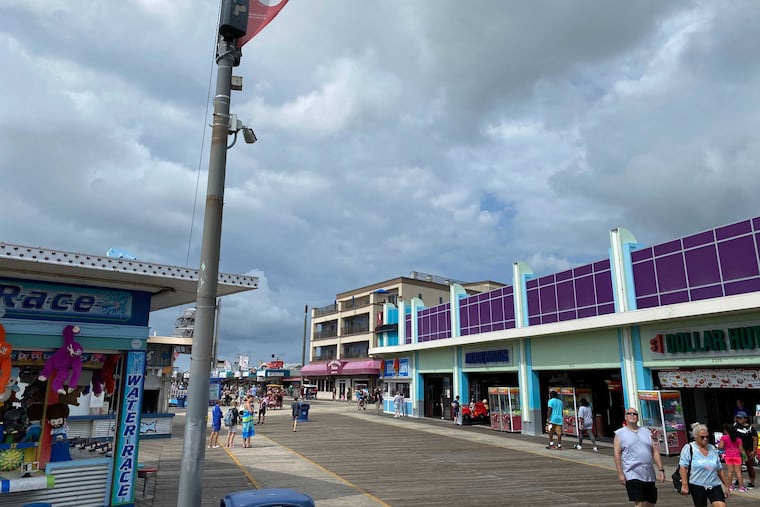Wildwood arcade owner sexually assaulted pre-teen employee decades ago, lawsuit says
The former owner of a Wildwood arcade was accused of sexually assaulting a 12-year-old employee in 1977, according to the lawsuit.

The former owner of one of Wildwood’s most notable arcades is accused in a lawsuit of drugging and sexually assaulting a 12-year-old employee more than 40 years ago.
In the lawsuit, filed Monday in Cape May County Superior Court, the plaintiff, identified only by the initials J.H., claims Martin “Marty” Shapiro, former owner of Gateway 26 Arcade Casino, spiked his drink before sexually assaulting him in the arcade’s office in June 1977.
Gateway 26 Arcade Casino at East 26th Avenue and Boardwalk is a large and recognizable business on the Wildwood boardwalk.
“It’s a landmark,” said A.J. Thomson, an attorney at Edelstein Law, LLP, which filed the suit. “And our client has given this very detailed account of what occurred to him. It’s something that still affects him.”
When reached by phone, Shapiro, 85, denied the allegations, claiming he never hired anyone under age 14.
“It’s not true, that I can tell you,” said Shapiro. “I don’t know that person. I don’t know who that is.”
“I don’t know what to say,” he added. “I’m literally shocked.”
North Wildwood police received a report about the 1977 assault last month, but declined to pursue criminal charges because the statute of limitations had passed, said police spokesperson Lt. Katherine Madden.
According to the lawsuit:
The plaintiff had been looking for a summer job and was hired to operate games of chance for kids, the lawsuit said. At the arcade, he’d stock shelves and clean the ashtrays and the carpet.
It was the victim’s third day working at the arcade when Shapiro called him into a back office to have lunch.
After drinking a soda Shapiro offered him, the alleged victim felt unsteady, and was unable to stand up, the lawsuit said. When he tried to walk, he fell.
Shapiro then picked up the boy and put him on a bed in an adjacent sleeping quarters, where Shapiro first sexually assaulted him. After leaving him in the bed while speaking to an adult in the kitchen, Shapiro again sexually assaulted him.
After the assault, the boy never returned to work for Shapiro, according to the lawsuit.
On Tuesday, Shapiro said he didn’t know the victim or how to make a spiked drink.
“I wouldn’t even know how to make a drink like that,” said Shapiro. “It’s such a false story.”
Dave Stefankiewicz, Shapiro’s attorney, emphasized that Shapiro doesn’t know the alleged victim. Stefankiewicz is expecting to respond to the lawsuit in the next week or so.
“We maintain there is absolutely no basis to this,” the lawyer said. “We categorically deny this. We think it’s a money shakedown, and we’re going to defend it to the fullest.”
Despite having sold Gateway 26 in 1992, Shapiro is an omnipresent figure on the boardwalk, often appearing at the arcade as a game barker. In Facebook posts from Gateway 26 as recent as earlier this month, Shapiro is pictured offering greetings to visitors.
The Monday lawsuit was one of multiple civil suits enabled by a New Jersey law signed by Gov. Phil Murphy in 2019.
In 2019, the state made amendments to the statute of limitations, extending reporting timelines for victims. The legislature also created a two-year window that ends Nov. 30, for victims of sexual assault to come forward with civil suits.
“We’re here to do what New Jersey has allowed victims to do, which is to finally bring justice,” Thomson said.